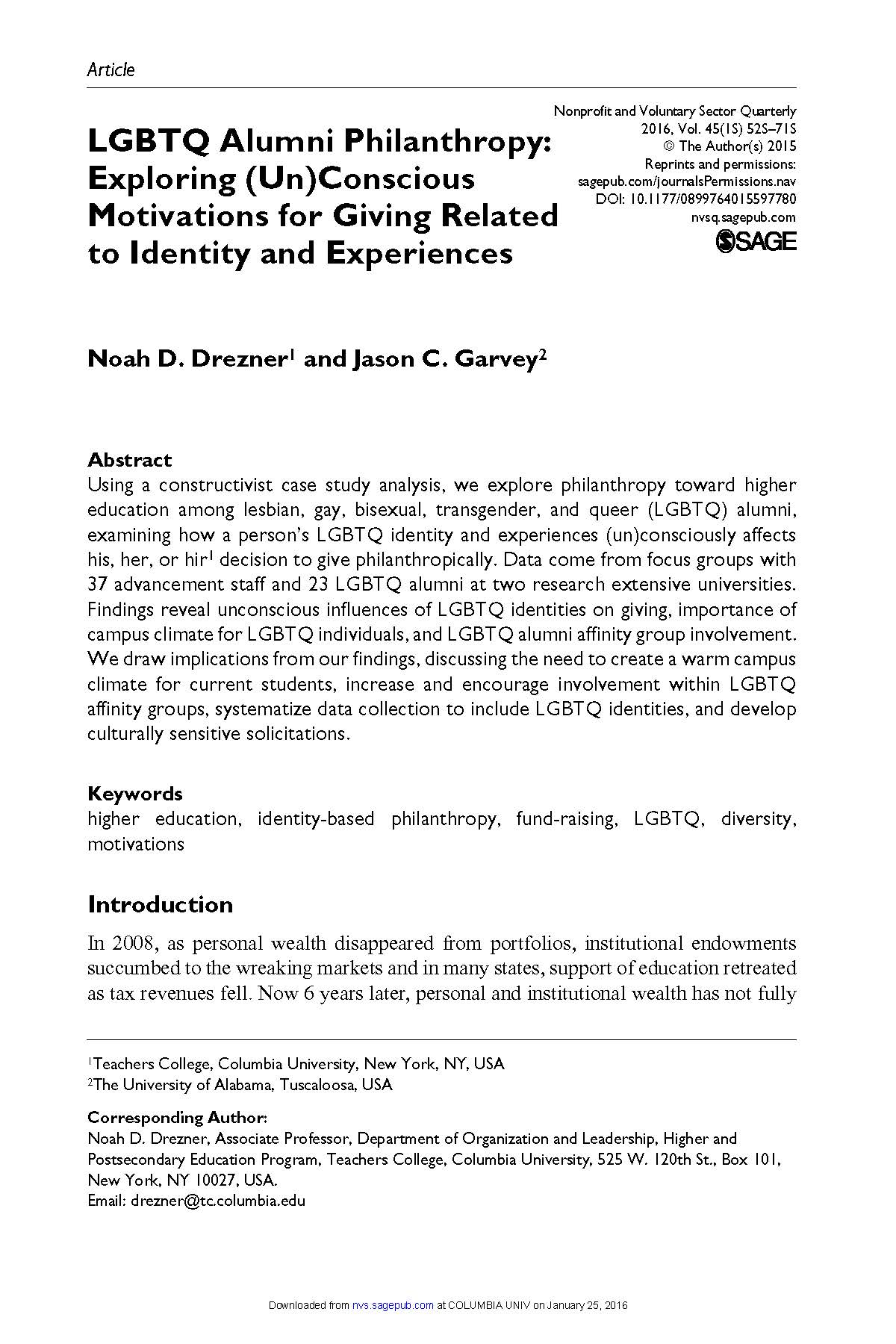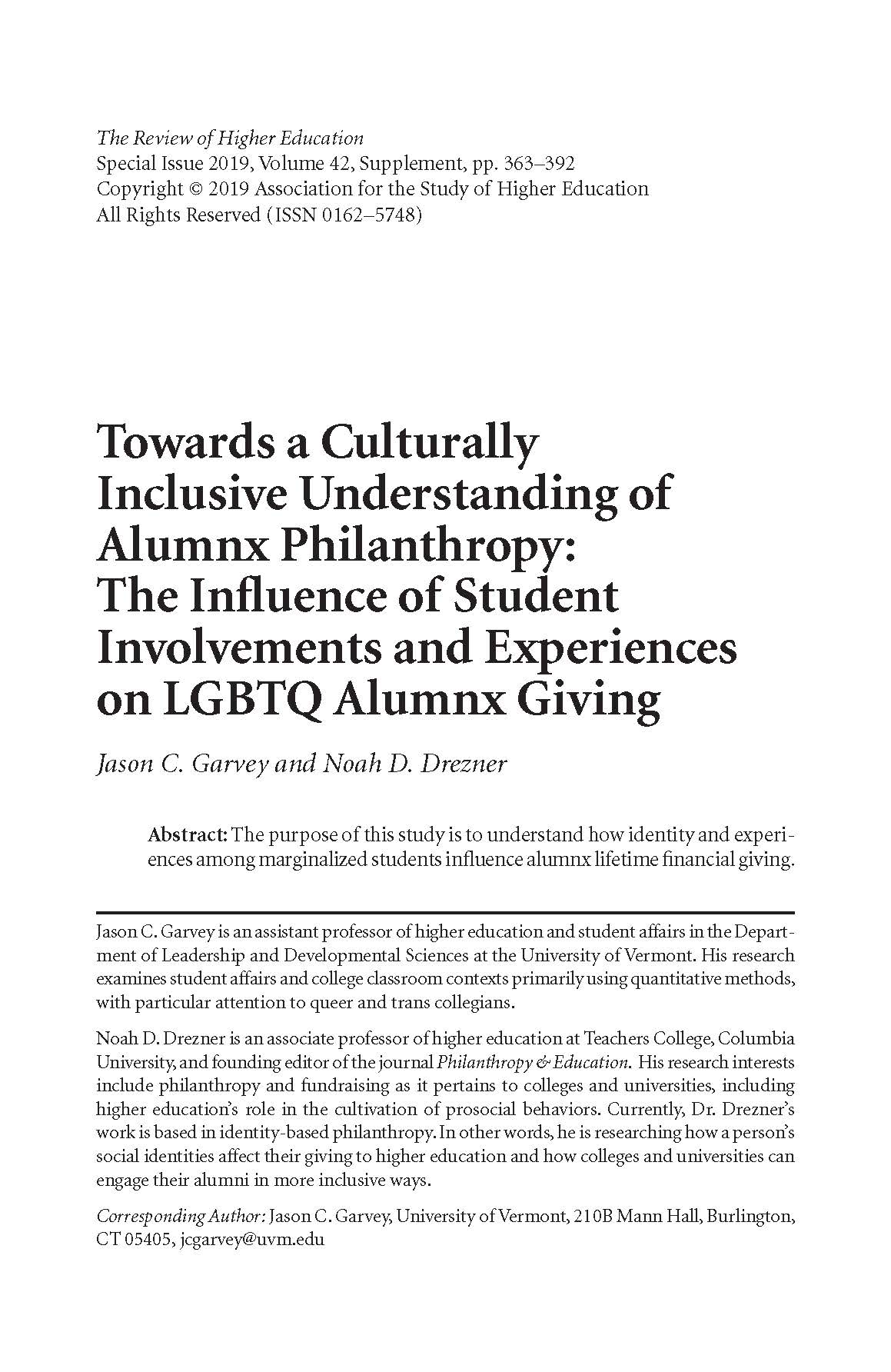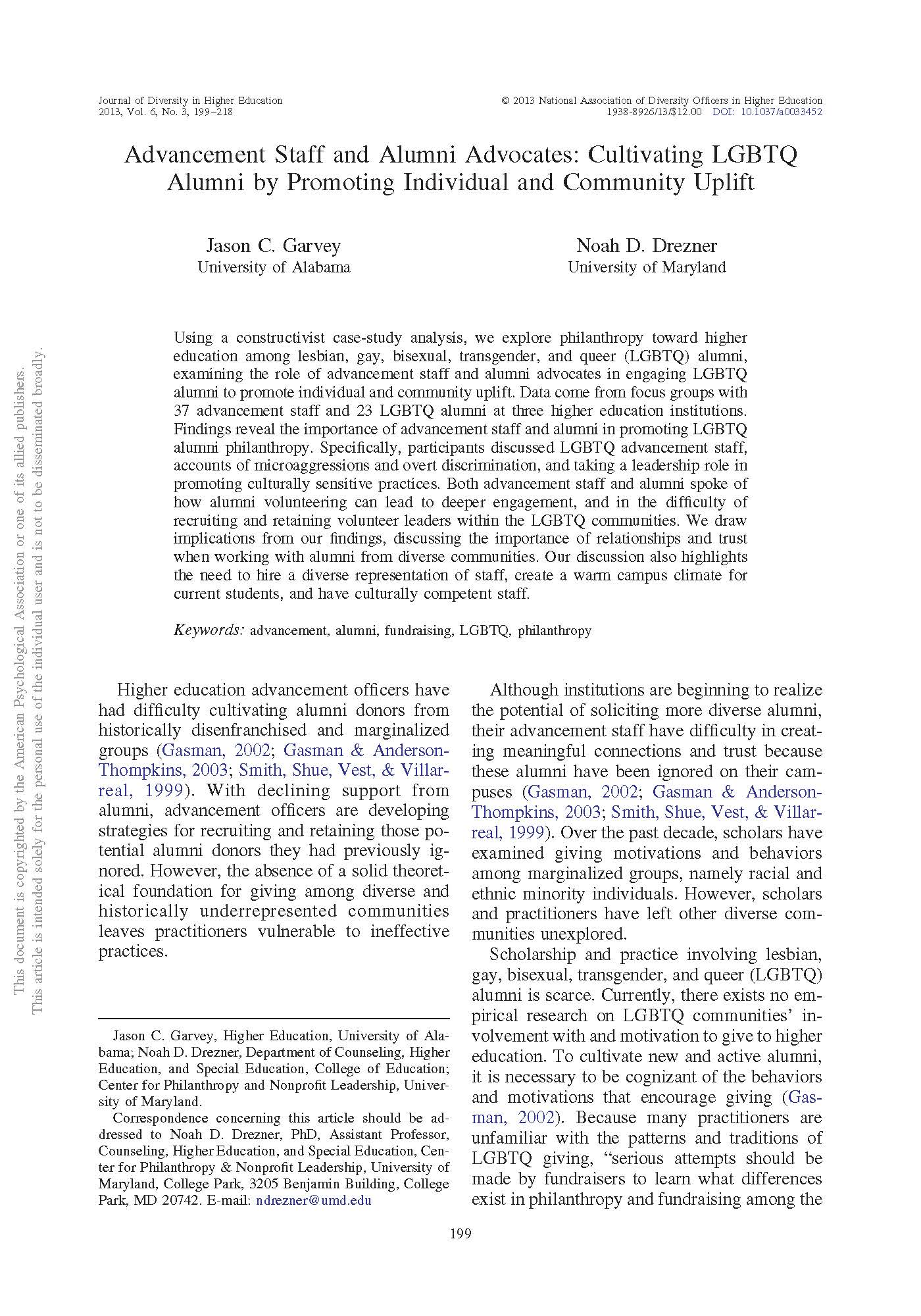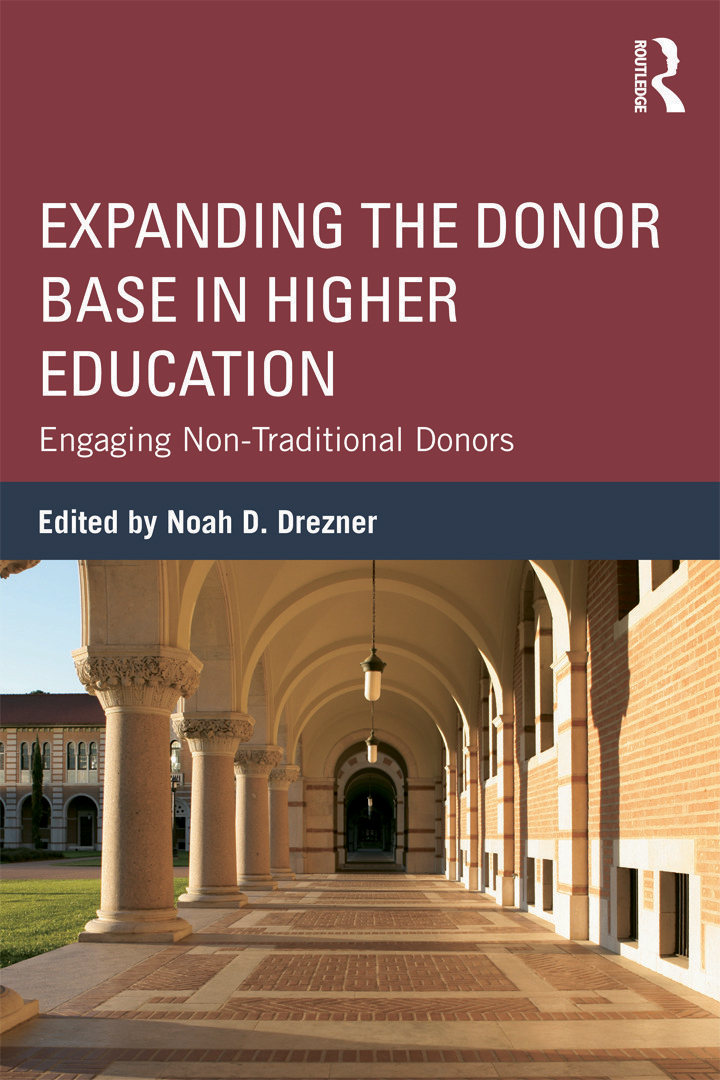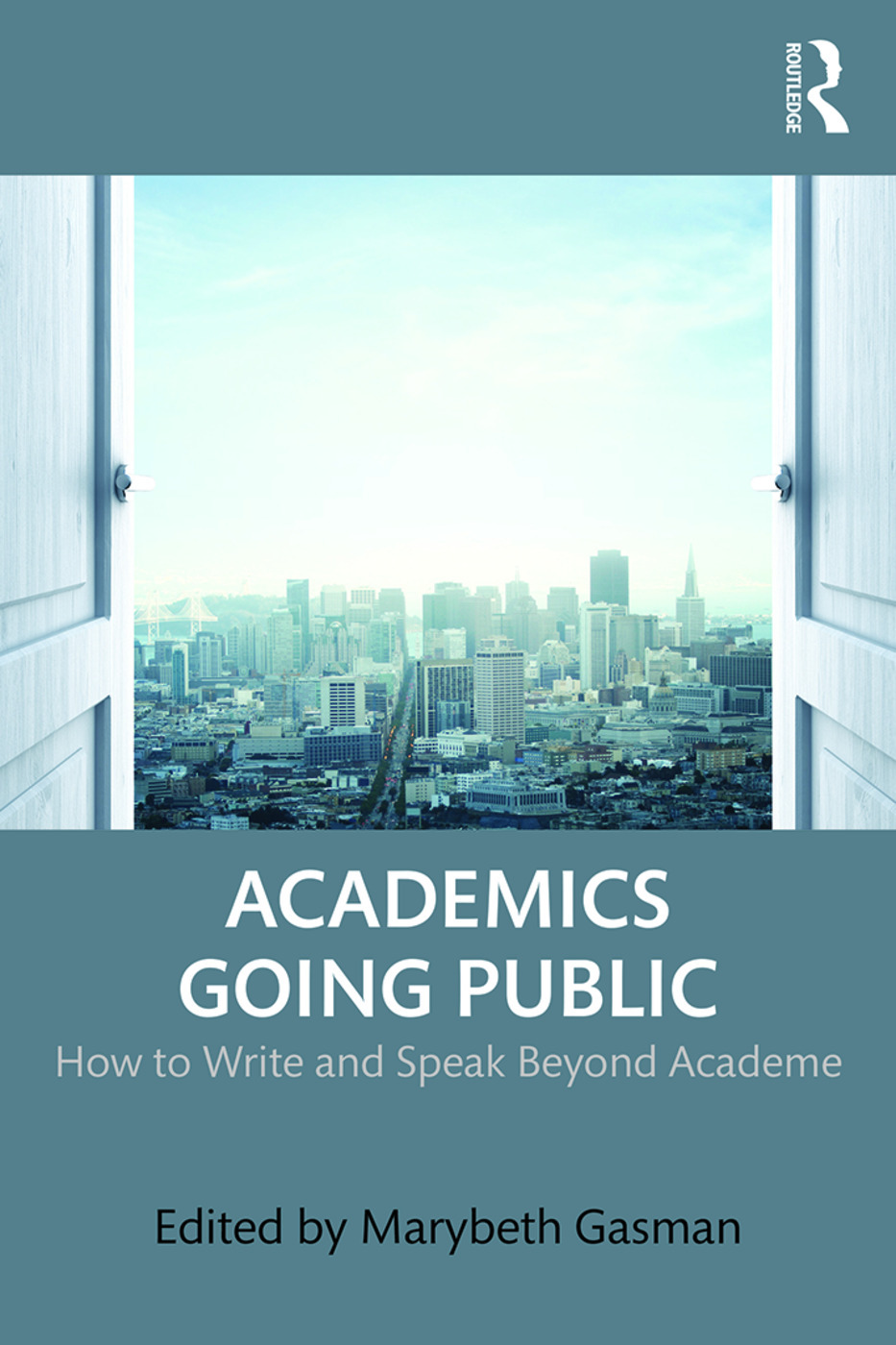The National LGBT Alumni Study
The National LGBT Alumni Study (co-PI with Jason C. Garvey, Professor Drezner’s former Ph.D. student and Friedman-Hipps Green and Gold Professor of Education at the University of Vermont) is a mixed-method study that examines how sexual orientation and gender identities affect a person’s philanthropic behavior. Prior to this study, there was no exploration of how one’s sexuality affected their philanthropic giving—let alone within the context of higher education. Previous studies outside of higher education, like much of the identity-based philanthropy literature, focused on giving to one’s community (i.e., LGBT causes). Our work not only advanced our understanding of how sexuality, as a social identity, affects motivations to give, but places giving outside of the context of supporting a cause related to that identity, increasing scholars’ capacity to explore how a social identity influences philanthropic actions more broadly.
We built a mixed-method design that leveraged the need for in-depth qualitative study to understand a phenomenon that had yet to be studied using the benefits of a large population survey. The qualitative portion of the study included a multi-institutional case study with eight diverse institutions and more than 170 participants. Data collection involved a two-tier approach. First, we interviewed advancement officers from alumni relations and fundraising/development positions across all job functions and position levels. For the second tier, we conducted focus groups with LGBTQ alumni with varying social identities, levels of involvement with their alma mater, and giving history. The quantitative portion included an original survey that was a product of Jason Garvey’s dissertation that he completed under my sponsorship. Using the theoretical constructs that emerged from our multi-institutional case study, we created a survey instrument that operationalized philanthropic involvement and motivation concepts germane to LGBTQ alumni. The survey was conducted in 2014 and had 2,290 respondents. By creating our own data collection, we allowed individuals to identify as they choose, share about their motivations, experiences, and beliefs far beyond administrative data allows.
The qualitative and quantitative portions of the National LGBT Alumni Study resulted in five publications. For example, we learned about the unconscious influences of LGBTQ identities on giving. Most of the participants mentioned that their identity did not play a role in their giving, yet when probed, their giving emerged as related to and affected by their LGBTQ identity. This unconscious motivation has not been observed in other philanthropy scholarship. Further, through the quantitative portion we expanded Monks and Clotfelter’s conceptual frameworks on alumni giving by adding the Oyserman and Markus Identity-Based Motivation framework. This allowed us to show how undergraduate involvement and LGBTQ experiences in colleges have statistically significant relationships with alumni giving.
